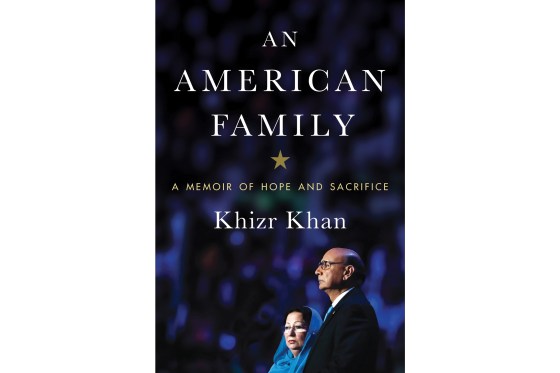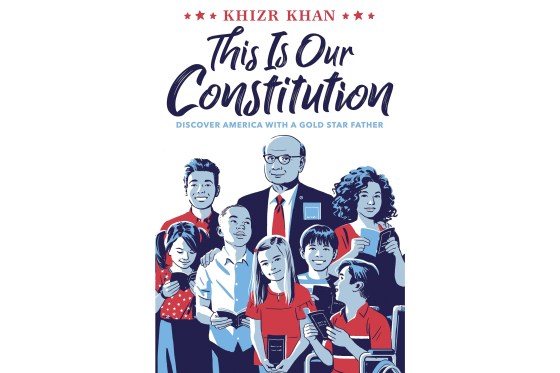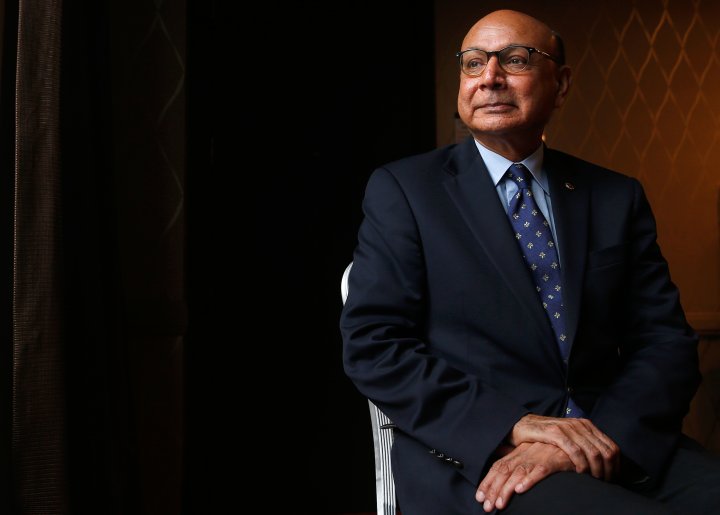Khizr and Ghazala Khan became political celebrities a little over a year ago, after they spoke at the Democratic National Convention about their son Captain Humayun Khan, a U.S. soldier killed in Iraq. The Gold Star parents asked Donald Trump, then the Republican presidential nominee, if he had ever read the Constitution and offered to lend him their copy; Trump claimed he’d been “viciously attacked.” The Khans emerged with public support, and pocket Constitutions, which Khizr said he always carried, hit the Amazon best-seller list for a hot minute. Now Khizr Khan is reupping his fight for American values with a pair of new books, This Is Our Constitution, a kids’ guide to that crucial document, and An American Family: A Memoir of Hope and Sacrifice, about his upbringing in Pakistan, his journey to U.S. citizenship in 1988 and his hopes for the country.
In an interview with TIME, Khan says there have been times he regretted stepping into an increasingly divisive political arena—“every day when there’s lack of comfort, lack of privacy,” he says. But he hopes that his late son, who had a childhood reputation for standing up to bullies, would be proud of how his parents have spent the past year. Khan has visited more than 160 communities since the DNC in July 2016, including Portland, Ore.; Toledo, Ohio; Houston; and Pittsburgh.
“I had suspected that then candidate Trump would continue to display his ignorance and his lack of regard for basic dignity and basic courtesy to our values, to rule of law, to our democratic system of government,” says Khan. “That concern and that fear have come true.” He has watched repeat attempts at immigration bans targeting Muslim-majority countries and has seen white supremacists march in his hometown of Charlottesville, Va. But his memoir is a lesson in optimism.
 Random House
Random House Khan writes of love for his family, both ancestral and nuclear, including the distress and then acceptance he experienced when Humayun joined the ROTC. And he writes of his marriage. “Falling in love was a laborious process in Pakistan in the 1970s,” he writes of the customs that made dating so difficult their courtship required weeks of his riding a bus with her just to make small talk.
An American Family is also about another kind of love: Khan’s deep admiration for the founding U.S. documents, which he first read in 1972, when he was a college graduate studying law in Pakistan. Khan later put himself through Harvard Law School, sleeping on a park bench in Boston for a brief period after graduation because he was sending his entire paycheck to Ghazala and their sons in Houston.
In Pakistan he read the Declaration of Independence obsessively, poring over its meaning and history. The Constitution was “rather dry” by comparison, Khan writes, but “the very fact that there were amendments was magnificent: The rules could be modified to more ably and comprehensively serve the good of the people, as if the document itself was alive, reactive, adaptive.”
Now, he says, “I urge every American, under these perilous times, to read these documents.” He also thinks all Americans, both immigrants and those born in the U.S., should be required to take an oath of citizenship because “it leaves you with such a sense of responsibility and patriotism.”
 Random House
Random House The values that Khan learned from the Founding Fathers and from his grandfather in Pakistan—respect, compassion for strangers—are the same ones he passed on to his three sons and the ones he is calling on America to embrace. “I have seen the hope, patriotism and belief in our values and our democracy,” he says. “It has been reaffirmed time after time after time—every handshake, every hug, meeting people in the streets, on trains, in stores.”
Khan says he has no political aspirations, though he is often asked about it. “Just continue to speak, serve. Hopefully sometime I’ll be able to gain some privacy so I can sit down and reflect,” he says. But he holds the U.S. Capitol in such high regard that he says he would proudly sweep its steps if someone only handed him a broom.


